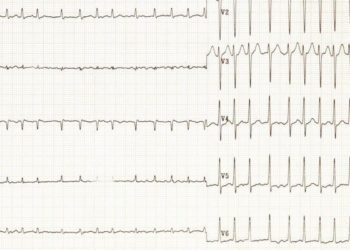Off-hours PICU admissions not linked to increased mortality
1. Off-hours admissions to the pediatric intensive care unit (PICU) were less likely to be elective, had a higher risk of mortality using the Pediatric Index of Mortality 2 (PIM2), and had higher observed ICU mortality.
2. Off-hours admission to the PICU was associated with lower odds of mortality compared to regular weekday admissions, when adjusted for PIM2 risk of mortality, age, gender, origin of admission, trauma status, and 24/7 in-house intensivist presence.
Evidence Rating Level: 2 (Good)
Study Rundown: Care provided in the intensive care unit (ICU) may vary depending on time of day and day of the week. Previous large scale studies of adult ICU admissions showed increased risk of death with weekend admissions. This study examined whether off-hours admissions (nighttime between 7:00pm to 6:59am; anytime Saturday or Sunday) to the PICU were associated with increased risk of mortality. While off-hours admissions were less likely to elective, had a higher risk for mortality using PIM2, and had a higher observed ICU mortality, multivariable regression analysis showed that off-hours admission was associated with lower odds of mortality. However, post hoc multivariable analysis did show that admission during weekday mornings (6:00am to 10:59pm) was associated with increased odds of death. Though this study is limited to death in the ICU vs. death after transfer from the PICU, it does reassure physicians and patients that potential variations during off-hours in the PICU do not increase risk of mortality.
Click to read the study, published today in Pediatrics
Relevant Reading: Association between time of admission to the ICU and morality: a systematic review and meta-analysis.
In-Depth [retrospective cohort study]: Using data from the Virtual PICU Systems database, 234 192 PICU admissions of children younger than age 18 in the United States between January 1, 2009 to September 29, 2012 were included in the study. Patients admitted during regular weekdays vs. off-hours significantly differed in median age (4.4 vs. 4.8 years; p<0.0001), gender (44.8% vs. 43.4% female; p <0.0001), PIM2 risk of mortality mean % (2.4 vs. 3.1; p<0.0001), elective admission (34.4% vs. 6.1%), and ICU mortality (2.2% vs. 2.7%; p<0.0001). The largest portion of regular weekday admissions came from the operating room (22.5%), while the majority of off-hours admissions came from the same hospital ED (43.3%). Off-hours admission had a lower odds of mortality compared to regular weekday admissions (OR 0.91; 95% CI 0.85-0.97; p=0.004). Specifically, nighttime admissions were associated with a lower odds of mortality (OR 0.86; 95% CI 0.81-0.92; p<0.0001). There was no difference in odds of mortality between weekday and weekend admissions (OR 1.01; 95% CI 0.94-1.09; p=0.79). Post-hoc analysis also revealed that morning admissions (6:00am to 10:59am) had increased odds of death (OR 1.27; 95% CI 1.16-1.39; p<0.0001).
More from this author: Single-family room model improves NICU outcomes; Pediatric renal and thyroid cancer rates increase; Hydroxyurea not associated with clinically impaired vaccine response; Peer-mentored therapy reduces distress in mothers of children with disabilities; Increased risk of hookah use in urban and high socioeconomic adolescents
Image: PD
©2012-2014 2minutemedicine.com. All rights reserved. No works may be reproduced without expressed written consent from 2minutemedicine.com. Disclaimer: We present factual information directly from peer reviewed medical journals. No post should be construed as medical advice and is not intended as such by the authors, editors, staff or by 2minutemedicine.com. PLEASE SEE A HEALTHCARE PROVIDER IN YOUR AREA IF YOU SEEK MEDICAL ADVICE OF ANY SORT.







